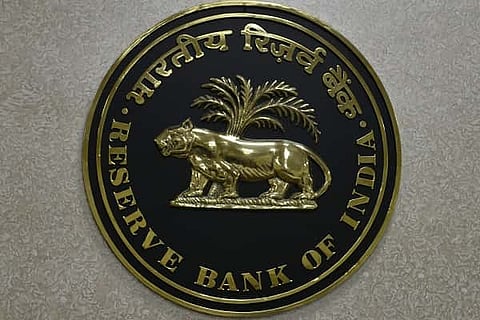
- News Updates
- PSU Watch
- Defence News
- Policy Watch
- हिन्दी न्यूज़
- Jobs Watch
- States News
- Event News

New Delhi: The high inflation rate in the last three quarters is mainly a consequence of the 'exogenous' price shocks, and addressing the issue will require coordinated policy efforts, RBI Monetary Policy Committee (MPC) member, Shashanka Bhide said. Bhide further said the inflationary pressures are high and it certainly is a test for India's inflation targeting framework.
"The high inflation rate in Q2 FY2022-23 follows high inflation in the previous two quarters," he said.
The global growth slowdown is also expected to dampen the price pressures. Bhide said measures are needed to encourage exports and reduce the import bill at a time when global trade is slowing.
Bhide said, "While this pattern is mainly a consequence of the exogenous price shocks, it is important to take measures to limit the spillover of the price shocks to the rest of the economy."
"Addressing these issues will require coordinated policy effort, monetary policy and other economic policies," Bhide said.
Bhide said currency depreciation also reflects the strengthening of the US dollar against most currencies because of the sharp monetary policy tightening measures in the US.
"Weaker rupee also affects inflationary pressures as cost of imports rises at a time when the price of fuel commodities has remained high," he opined.
Bhide noted that exporters may see a rise in earnings, but this may be offset by high import costs and slower export growth.
For the common citizens, he said, it is the impact of inflation through which the currency depreciation would be felt.
"High fuel and food prices and their spillover to other sectors have sustained the high inflation rate," he said.
The retail inflation based on CPI has remained above 6 percent since January 2022, and it was 7.41 percent in September. The MPC factors in retail inflation while deciding the RBI's bi-monthly monetary policy.
India's trade deficit widened to USD 26.72 billion in September, while exports contracted by 3.52 percent to USD 32.62 billion.
As per the mandate given to the RBI by the Union government, the Central bank is required to ensure retail inflation remains at 4 percent with a margin of 2 percent on either side.
Bhide said the monetary policy tightening by the RBI aims to bring down the inflationary pressures as high inflation adversely affects consumption and investment demand.
Observing that borrowing costs rise due to interest rate hikes, he said the expectations of lower inflation will help improve demand conditions.
The RBI has been aggressively raising the key interest rate since May to contain inflation. It has so far hiked the short-term lending rate by 190 basis points, taking the rate to a nearly three-year high of 5.9 percent.
The Reserve Bank will hold a special meeting of its rate-setting committee on November 3 to prepare a report for the government on why it failed to keep retail inflation below the target of 6 percent for three consecutive quarters since January.
The six-member Monetary Policy Committee (MPC) headed by RBI Governor Shaktikanta Das will prepare the report on reasons for the failure to meet the inflation target as well as the remedial measures the central bank is taking to bring down prices in the country.
"The Covid-19 pandemic also presented the challenges on the global scale, affecting trade and supply chains," Bhide said, adding the challenges that are now emerging including slowing down of export demand, financial market volatility and the uncertainty consequent to the Russia-Ukraine war.
(With PTI inputs)
(PSU Watch– India's Business News centre that places the spotlight on PSUs, Bureaucracy, Defence and Public Policy is now on Google News. Click here to follow. Also, join PSU Watch Channel in your Telegram. You may also follow us on Twitter here and stay updated.)
